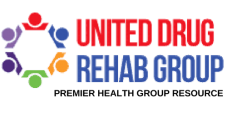Anger Management, Addiction and Relapse
Anger is now recognized as a strong contributor to addiction. As such, this co-condition must be treated along with substance abuse.
People with difficulty controlling anger or becoming angry beyond the normal scope of emotional patterns are said to be suffering from an anger disorder. A strong factor in predicting anger disorder is environment. Stress, poor finances, difficult family situations and abuse all contribute to anger. Genetic factors also play a part, and often family members with the same type of anger disorders will be present. The brain’s uptake of serotonin may be implicated in anger issues.
Sometimes potential for behavioral disorders such as uncontrolled anger originates even before birth. Maternal stress over insufficient means or abuse precipitates fetal brain changes. Children exposed to high levels of maternal stress during fetal development showed a smaller hippocampus, which is the part of the brain devoted to memory and learning.
What do anger and addiction have in common?
Anger is impulse-generated, and the desire to drink is also impulse-driven. An angry person feels that he/she has a reason to drink. In fact, the feeling of anger can become an addiction in itself, as anger is garnered in an attempt to resolve perceived slights and hurts. When alcohol is consumed, an angry person is much more likely to become enraged, which allows the intoxicated person to express the anger in abusive, destructive ways. Incarceration, ruined relationships and domestic upheaval may be the result.
Those who recently joined Alcoholics Anonymous were ranked in the top two percent of anger statistics compared to the rest of society.
Relapse and anger management
Many abusers of alcohol or other substances do not see a relationship between their addictive behaviors and the anger they harbor. As such, treatment is not sought, or, if desired, permanent sobriety becomes elusive due to constant anger.
Anger is strongly related to impulsive and harmful decisions, such as using alcohol or drugs after rehab. Anger management is crucial to managing addictions.
Anger management and treating addiction
Resentment and acting out are often a substitute for inability to communicate about feelings, but others do not understand the anger or why it may seem to be directed at them. This lack of communication alienates family and friends and leaves the angry person isolated and hurt. An addictive substance may seem a palliative measure.
Successful anger management techniques start with understanding that anger is most destructive to the person harboring it. Acknowledging the bad effects of anger and the personal fallout is the beginning of treatment.
Understanding why a person becomes angry, or what triggers anger, comes next. Writing out a log detailing triggers can aid in developing a plan to channel anger when these events present themselves.
Often, anger develops a life of its own. Deep breathing before responding or commanding “Stop!” mentally can derail the cycle, as can a positive thought distraction.
Building empathy for others is part of anger management, as well as learned communication and listening skills. Learning to forgive puts a person on a plane higher than anger.
The techniques of anger management, like any new skill, must be learned and practiced. When they are learned, drugs and alcohol are no longer needed to cope with and fuel destructive feelings.
If you feel that your efforts at sobriety are being sabotaged by anger, please seek help for anger management today. It may be the missing key to your success. If you or a loved one have relapsed due to anger management, be sure to get the help you need today. The professionals at United Drug Rehab are here for you.



